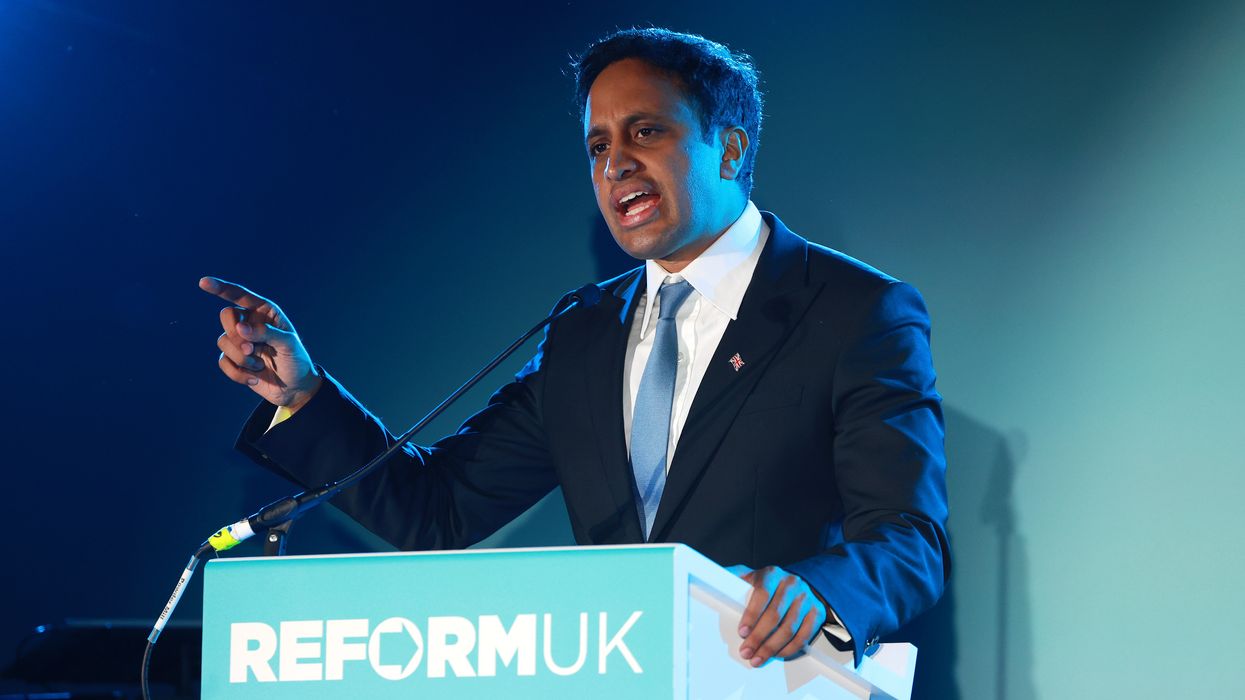THE UK government has launched an anti-obesity drive to help people adopt healthier lifestyles after the Covid-19 "wake up call".
Boris Johnson, who had been hospitalised after testing positive for coronavirus earlier this year, said that getting fitter was key to help protect against the pandemic.
"Losing weight is hard but with some small changes we can all feel fitter and healthier," the prime minister said on Monday (27).
"If we all do our bit, we can reduce our health risks and protect ourselves against coronavirus -- as well as taking pressure off the NHS."
In a Twitter video posted to mark the launch of the 'war on obesity', Johnson said he "always wanted to lose weight for ages and ages", and that his hospitalisation due to Covid-19 shook him up.
"I have been steadily building on my fitness," he added, stressing the benefits of morning jogs.
Health Secretary Matt Hancock, too, stressed that it was "vital we take action on obesity to protect the NHS and improve our nation's health".
"We know obesity increases the risk of serious illness and death from coronavirus," he noted.
The raft of new measures unveiled by the health department was launched alongside a new "Better Health" campaign, led by Public Health England (PHE), which will call on people to embrace a healthier lifestyle, backed by evidence-based tools and apps providing advice on cutting the flab.
New laws will ban the advertising of food high in fat, sugar or salt (HFSS) on television and online before 9pm when children are most likely to watch them. The government will also hold a short consultation on whether there should be a blanket ban on such adverts.
Promotion of foods high in fat, sugar, such as buy-one-get-one-free (BOGOF) offers will be restricted. There will also be a curbs on these items being placed in prominent locations in stores, such as at checkouts and entrances, and the internet.
Large restaurants, cafes and takeaways with more than 250 employees will be made to add calorie labels to the food they sell to help people make healthier choices. A consultation will be launched before the end of the year on plans to provide calorie labelling on alcohol to alert people on the so-called hidden liquid calories.
NHS-backed weight management services will be expanded, with more self-care apps and online tools, and its Diabetes Prevention Programme will be accelerated.
The government will also open a consultation to gather views and evidence on the current "traffic light" labelling system on food to analyse how this was being used by consumers and industry, with the unhealthiest food marked in red.
Hancock termed the measures "bold action" to help people stay fit.
"When you're shopping for your family or out with friends, it's only fair that you are given the right information about the food you're eating to help people to make good decisions," he said.
"To help support people we need to reduce unhelpful influences like promotions and adverts that affect what you buy and what you eat. Taken together, supported by an inspiring campaign and new smart tools, will get the country eating healthily and losing the pounds."
The urgency of tackling the obesity "time bomb" was brought to the fore by evidence of the link to an increased risk from Covid-19, the Department of Health noted.
According to official statistics, 63 per cent of adults in England are overweight, with obesity-related illnesses costing the NHS £6 billion a year.
Analysts also highlighted that one in three children in the country leave primary school overweight or obese.
According to a report released earlier by PHE, living with excess weight puts people at greater risk of serious illness or death from Covid-19, with risk growing substantially as body mass index (BMI) increases.
Nearly 8 per cent of critically ill patients with Covid-19 in intensive care units had been morbidly obese, compared with 2.9 per cent of the general population.
Dr Alison Tedstone, chief nutritionist at PHE, said the government's "plans are ambitious and rightly so".
"Tackling obesity will help prevent serious illness and save lives," he added.
"The main reason we put on weight is because of what we eat and drink, but being more active is important too. Making healthier choices easier and fairer for everyone, and ensuring the right support is there for those who need it, is critical in tackling obesity.
"These bold measures will help us tip the scales on obesity. The argument for action is the clearest it's ever been."
Over-consumption of calories is one of the most significant contributing factors leading to obesity.
Studies have shown many adults consume 200-300 extra calories a day above recommended daily guidelines, while already overweight children consume up to 500 calories more than they need every day.











